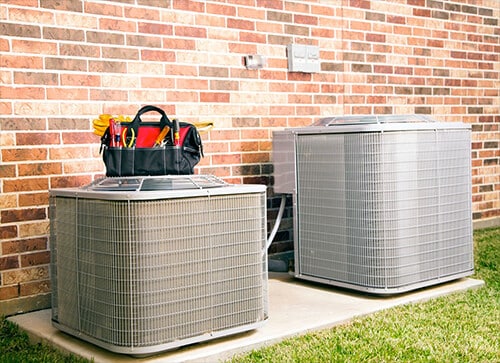Benefits of Installing a Heat Pump
Energy Efficient
Since heat pumps only transfer heat and do not generate any, they are very energy efficient.
Dehumidify
Heat pumps can be used in a reverse cycle to cool and dehumidify the air inside your home.
No Health Risks
Non-hybrid heat pumps do not burn any fuel, so there is no health risk associated with natural gas.
How Do Heat Pumps Work?

Since heat pumps only transfer heat and do not generate any, they are very energy efficient. For example, if you were using an electric furnace or a heater you can cut your consumption of electricity by up to 40% by switching to a heat pump.
Heat pumps can be used in a reverse cycle to cool and dehumidify the air inside your home, which is an affordable way of cooling your home in the hot and humid St. Louis summer months. With gas furnaces, there is a chance that carbon monoxide may leak from the furnace. Non-hybrid heat pumps do not burn any fuel, so there is no health risk associated with natural gas. Some heat pumps are actually able to dehumidify environments better than air conditioners while using less energy. This results in more cooling effect in the summer months for lower energy costs. When using heat pump to replace any traditional air conditioner or heating system, you can see a significant decrease in operating costs.
There are many varieties of heat pumps available including those that distribute air through your home’s existing ductwork as well as those that use ductless systems.
